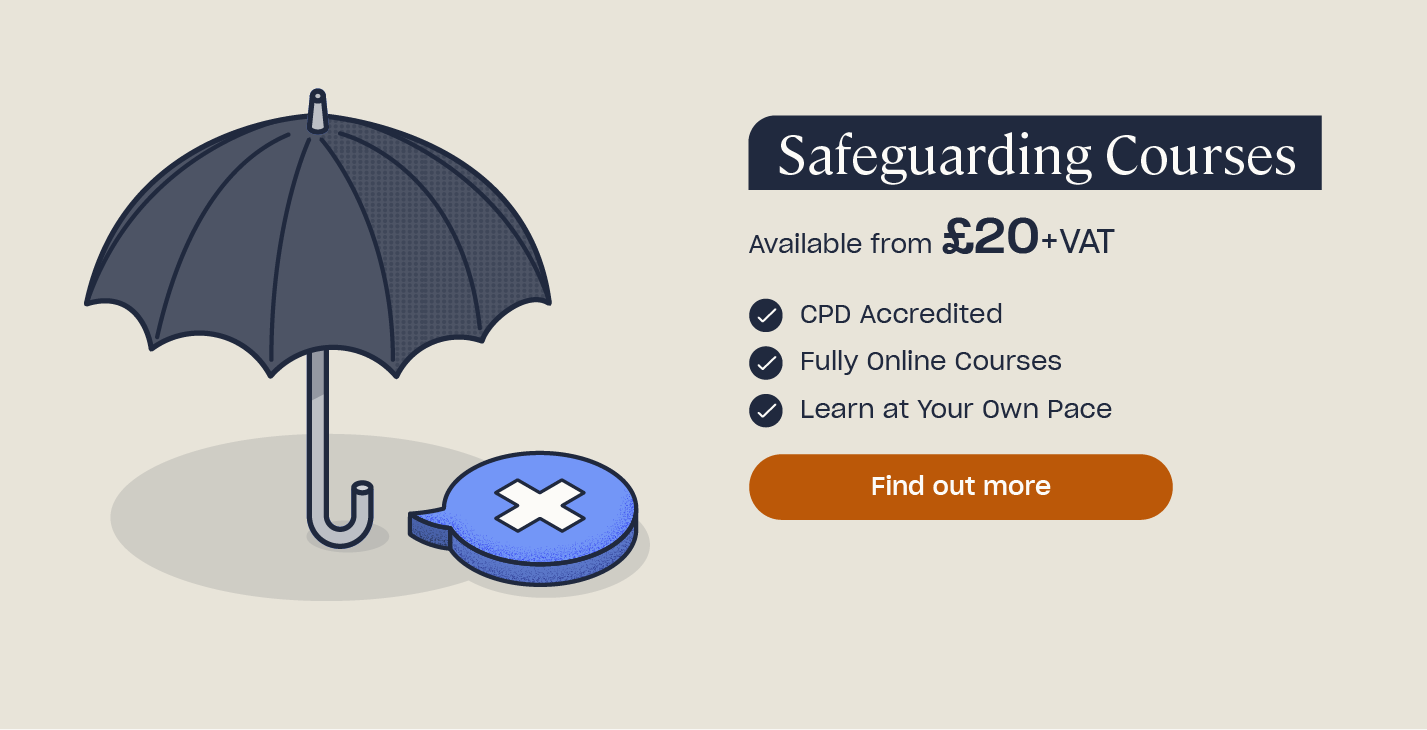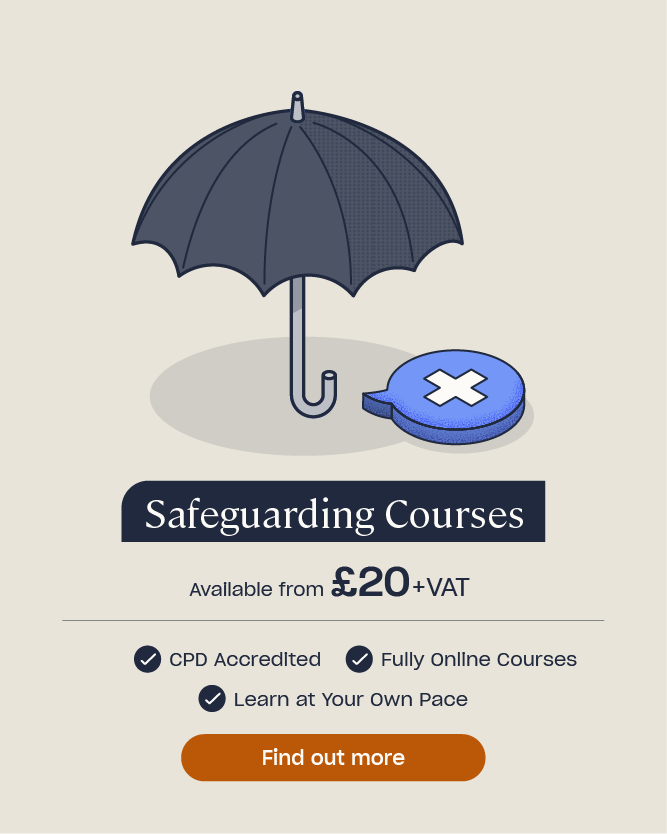How to Begin Homeschooling: Guidance & Requirements
In a previous post, we discussed the debate around homeschooling, including some statistics, advantages, and disadvantages. If you do decide to homeschool, you might be overwhelmed with questions about how to begin, and what the legal requirements are.
In this article, we will outline the initial steps to take if you wish to begin homeschooling, and provide some tips and ideas for doing so.
Use the contents below to jump to a certain section of the article.
- What are the Requirements for Homeschooling Children?
- How Do I Plan a Homeschool Curriculum?
- Homeschooling Tips for Parents

What are the Requirements for Homeschooling Children?
The law in England, Scotland, Wales, and Northern Ireland states that children of compulsory school age (from 5 to 16 years old) must receive efficient full-time education suitable to their age, ability, aptitude, and any special educational needs that they have. They can receive this education either by attendance at school, or otherwise (i.e., at home).
As a result, it is legal to homeschool your child. However, there are a few things that you should be aware of before you start.
Who Do I Need to Inform?
If your child is currently at school in England, Wales, or Northern Ireland, you should send the headteacher a deregistration letter. This letter should state your plans to educate your child at home full-time, from a specific date, and ask the headteacher to remove your child’s name from the register. You can send this letter through the post, or by email if you prefer. The headteacher might invite you to a meeting to discuss your decision, but you aren’t legally required to attend. You also don’t need the headteacher’s permission to deregister your child.

However, there are a couple of exceptions. If your child attends a special school, then you will need to ask permission before you can homeschool. You should send a letter to your local authority, giving your child’s name and school details, and stating that you are looking for consent for their name to be deleted from the school’s register. You might also wish to include details of how you will meet your child’s special educational needs; this could influence the local authority’s decision. If they refuse consent, they must tell you their reasons for doing so, and you are able to challenge the refusal. Websites such as HE Special can give you further information about this.
Additionally, if your child is subject to a School Attendance Order (SAO), you cannot homeschool unless you write to the local authority and ask them to revoke the SAO.
Homeschooling in Scotland
In Scotland, the process is slightly different. Under Section 35 of the Education (Scotland) Act 1980, parents of a child who has been attending a state school must ask for consent from their local authority before deregistering their child. Again, you should do this by letter. You may wish to include some initial suggestions about the education you will provide. The local authority should respond within six weeks, and can’t withhold consent unreasonably. As a result, unless there are extreme circumstances (for example, if your child is on the Child Protection Register), then consent will likely be granted.

In all parts of the UK, you do not need to inform anyone before you homeschool if your child:
- Has never attended school (for example, they have not yet reached compulsory school age).
- Has never attended school in the area where you now live (for example, you have moved to a different county and have not yet registered your child in a local school).
- Attends an independent school.
- Has finished primary education, and has not yet started secondary education.
- Had been attending a school which has now permanently closed.
Flexi-Schooling
There is also the option to flexi-school, where a child attends school part-time and receives the rest of their education at home. In order to do this, you will need permission from the school’s headteacher – and they have the right to refuse. Your local authority’s website sometimes contains a list of schools and colleges that are open to this sort of arrangement.
Back to Top
Do I Need Training to Homeschool?
There are a lot of misconceptions about homeschooling. Many people believe that homeschooling parents need to be academic or have relevant qualifications. In fact, neither of these things is true.
Research has shown that your education level does not have an effect on your children’s academic performance when you homeschool your children (e.g. Ray, 1990, 1997; Havens, 1994). The children of parents whose highest qualification is at secondary school level perform just as well as the children of parents with degrees.
This is particularly interesting, because your education level does have an effect if your children attend regular school (e.g. Dubow et al., 2009). It seems that the effect of parents being proactively involved in their children’s education, modelling good learning behaviour, and providing them with educational opportunities – all of which are involved in effective homeschooling – outweighs the effect of a parent’s own educational level (Li & Qiu, 2018).

In other words, you don’t need any sort of qualifications to teach your child successfully, let alone teaching qualifications. Training courses could be useful in increasing your confidence and knowledge of different learning strategies, but they are not compulsory. By homeschooling, you are not taking on the role of a classroom teacher. You don’t have to manage the behaviour of 30 children, follow safeguarding procedures, prepare reports, and do risk assessments. Your responsibility is simply to facilitate a good learning environment for your individual child.
Moreover, homeschooling doesn’t always have to involve you teaching your child directly. You could also employ a tutor, help your child to access online lessons and courses, send them to activity clubs, or join a group of other homeschooling parents to share the teaching. If you do get a tutor, remember to ask for references and a DBS check to ensure that they are safe around children – your local authority might advise you further on this. If you teach in a group, be aware that teaching five or more children of compulsory school age children full-time might require you to register as an independent school. Visit the government website for more information.
Back to TopWill I Be Inspected?
If you homeschool your child, you won’t undergo any Ofsted-type inspections. However, your local authority does have a responsibility to make an ‘informal enquiry’, checking that you are providing a suitable education for your child. Each local authority has its own policy and procedures on homeschooling. You should read the policy in advance, so you know what to expect.

An ‘informal enquiry’ might be very broad, or might ask for evidence of suitable education in the form of:
- A written report;
- Samples of your child’s work;
- A home visit from one of their elective home-school officers, with or without your child present, or
- A meeting with one of their officers outside your home.
You are not legally required to answer this enquiry, or agree to any meetings. However, failing to make contact with your local authority could make them conclude that your child is not receiving a suitable education. They could then issue a School Attendance Order (SAO), requiring you to register your child at a particular school. Failure to comply is a criminal offence.
They could also issue an Education Supervision Order (ESO), where they impose conditions on the way that your child is educated. Not complying with an ESO could lead to prosecution, and a care order, where the local authority has the overarching power to make decisions about your child’s education. Further lack of cooperation could lead to your child being put into care. As a result, you should always think about the best interests of your child first.
Back to Top
What is an Efficient, Suitable, Full-Time Education?
The law states that a child must have an ‘efficient, suitable, full-time education’. These terms are broad, and have only been partially expanded in later government guidelines. As such, you will need to consider how you are going to interpret and meet them yourself.
‘Efficient’
Government guidelines from both England and Wales suggest that homeschooling parents need to think about what they want to achieve – including your beliefs, values, and what you want for your child as they grow up – and then set out to achieve this. Doing so would fulfil the ‘efficient’ part of the clause.
‘Suitable’
As for a ‘suitable’ education, this depends on your child. You will need to think about their needs, their abilities, which subjects they particularly excel in, which they do not, and what their aspirations are.

It is important to homeschool your child in a way that helps them achieve their potential and get to where they want to be in life. Education should enable a child to become an independent citizen when they grow up. They should also have the ability to function outside the community that they were brought up in.
You aren’t required to follow the National Curriculum, but it could be a good guide for what your child should be able to do at their age, and would help them to take national exams.
The government advises that your teaching should not conflict with the fundamental British values of democracy, the rule of law, individual liberty, and mutual respect and tolerance of those with different faiths and beliefs – although you don’t have to actually teach these values.
Don’t forget that you need to give your child opportunities to socialise in some way with their peers. This allows for social development. You also need to consider whether you are teaching in a suitable environment. Your teaching space doesn’t have to be set up in a particular way, but it shouldn’t be too noisy or crowded.

‘Full-Time’
The term ‘full-time’ is also not defined in the law – there isn’t a certain number of required teaching hours. However, education should take up a significant proportion of a child’s life in order to be ‘full-time’. You need to know – and be able to prove – how much time you are spending on education each week. Nevertheless, you don’t need a timetable, fixed teaching hours, or to follow the school calendar.
While homeschooling, if you realise that you are not able to provide a suitable education, contact the local authority. They will help you to enrol your child in a school, although this may not be the school of your choice.
In the next section, we will give you some ideas for planning an efficient, suitable education.
Back to TopHow Do I Plan a Homeschool Curriculum?
It can be difficult to decide what to teach your child, and when. There is an abundance of choices available, because you don’t need to follow the national curriculum. However, you can narrow down your options by considering the following things.

Exams and Qualifications
The first thing to consider is whether you want your child to take national exams and gain qualifications. If they are nearing the age when they would normally take GCSEs or A-Levels, it could benefit them if you teach to the specification of an exam board.
You will need to choose a board (AQA, CCEA, Edugas, Edexcel, OCR, SQA, or WJEC). Your choice might depend on how comfortable you feel covering their content, and whether you can find a location nearby that will allow your child to sit the exam. International GCSEs (IGCSEs) – which are offered by Edexcel and the Cambridge examination board – are less likely to involve coursework. As a result, they are a popular choice for homeschooling parents. You will also need to remember to register your child for their exams in time for the deadline that year.
If you want your child to return to school for their exams, you could find out which exam board that school uses. Looking at their specifications could help you to prepare your child, so that their knowledge is on a level with their peers’ when they return.
Whether you want your child to take national exams or not, don’t feel limited by the national curriculum. Homeschooling has the advantage of allowing you to fit much more into the day, so you can explore many other topics, as well as those that the exam board recommends.

Choosing Subjects
Ideas for your own curriculum should start with the big questions. What knowledge and skills do you think children need to set them up for life? What would make your child want to learn, and help them to achieve their future aspirations? Which educational philosophy – or combination of philosophies – do you want to follow (e.g. Waldorf, Montessori, Charlotte Mason, classical, leadership education, interest-led learning, unit study, unlearning, or something else)?
You might decide to align with school settings and teach some ‘core’ subjects regularly – such as maths, English, and science – and some less often, such as history, geography, PSHE, photography, art, PE, RE, ethics, or foreign languages. If your child struggles with spelling and grammar, you could focus on that aspect of English first; if they’re inspired by a particular time period in history, learn about that! Inspiration should be at the centre of homeschooling – it will teach your child to enjoy learning.
You could also choose to teach life skills: have lessons on ironing, cooking, cleaning, sewing, critical thinking, or problem-solving. Doing so will prepare your child for the future, in terms of running their own household and being employable.

Lesson Planning
Once you’ve decided which subjects you are going to teach, and whether you are following an exam specification or not, you can break the content up into individual lessons. Research has shown that most people learn best with short, 30-40 minute lessons; start planning for these periods and see whether it works for you. You will likely be teaching for fewer hours than regular classroom teachers, due to the effectiveness of homeschooling: a good starting point is 3-4 hours per day, depending on the child’s age. After a few weeks, you can re-assess this and determine whether it’s working or not.
You also need to plan how many days per week you are going to teach, whether to teach in the mornings or the afternoons, and whether you will stop for the day when they finish all the work you have planned, or keep going until they have completed their scheduled hours. If you decide on the latter, you will need to plan back-up content.
In general, it’s a good idea to do a few weeks’ planning at a time. This shouldn’t take you more than a few hours. Key things to include are the page numbers of books you are planning to use, which activities you are going to do (and for how long), and a learning objective. Learning objectives are questions that you want to your child to be able to answer by the end of the lesson – for example, ‘why did Henry VIII divorce Catherine of Aragon?’. Each objective should follow on from your last one, so that your child learns new ideas progressively. Don’t just ask your child if they understand a lesson; get them to show you that they do with targeted questions.

Resources
If you’re struggling to come up with lesson plans – or to teach – there are catalogues of courses for homeschooled children where the curriculum has been made for you. You can choose a course according to your educational philosophy, learning approach, or the amount of time you want to spend on the subject. Children can work through these lessons themselves, with less guidance required from you. These pre-made courses can be expensive to buy, but there are also lots of free curriculum resources: the Homeschooling Ideas website gives you a few useful suggestions.
No Curriculum
You could also choose not to have a curriculum at all – as long as you can prove that your child is getting an effective education, they can acquire that education in any sort of way. A ‘suitable’ education for your child might be one where your child spends time listening to audiobooks, using BBC Bitesize, reading educational magazines, and participating in group activities.
Back to TopHomeschooling Tips for Parents
If you’ve decided to homeschool your child, here are some tips that might help you in the beginning.

Have a flexible approach
Try different things out and see what works for you – don’t worry if it doesn’t go smoothly at the start. There is no ‘right way’ to do things; use your child’s interests and learning style as a guide and go from there.
Set an example
Be curious about things you don’t know. Look up the answers to any questions you have, and put in effort to learn new things in front of your child. By modelling a positive attitude and not fearing failure, you can encourage them to keep trying when they find things difficult.
Try ‘deschooling’
If your child has already attended regular school, a period of ‘deschooling’ (no scheduled lessons for around a month) could help them to change their attitude to learning. It also gives you a chance to plan what you are going to teach. In this period, you could do crafts, go on trips, and start new hobbies – see what they enjoy and use that as a starting point.

Create a schedule for learning
This will help you to stick to timings and lesson plans. Our child routine planner is a good template for you to print off and fill in. Remember to make some days different to give your family some variety. During your scheduled ‘school time’, be very firm: don’t answer the phone or door, and don’t schedule non-school appointments.
Create a designated learning space for ‘school’
This will help you to separate your school and home lives, so that you and your child can focus better. Decide where to position this space according to which learning environment your child thrives in: busy or quiet? Comfortable and homely or school-based (with a desk and chair)?
Go on trips
Remember, not all learning has to take place using books and worksheets. Museums, parks, science centres, and art galleries are also rich learning environments. You could even make going to the bank, post office, or supermarket into an educational outing – teach your child what each place is for, or look at prices and how to budget.

Don’t forget other potential excursions:
- Churches and National Trust places are great locations for learning about history;
- Visit a farm to learn about animals;
- Go to bird sanctuaries;
- Look round ‘open gardens’ in villages near you;
- Try out a local craft group or pottery studio;
- Go to the library and show your child how books are categorised.
Praise your child often – but not too often
Positive feedback is important, but can be detrimental if it is too vague or too frequent. Negative feedback should only be used sparingly. For more information, see our article on effective communication.
Find other homeschoolers nearby
Homeschooling groups give you a community for your child to socialise in. They also provide help and guidance from others who are more experienced. Search for ‘home education + your area’ and see what comes up. There are dedicated Facebook groups, such as Homeschooling Projects, Home Schooling UK, Home Education UK Facebook Forum, and Ideas UK. You can also find homeschooling forums like A Little Bit of Structure, the Mumsnet HE forum, and the Netmums page for home schooling.
Other communities include Education Otherwise and the Home Education and your Local Authority group. These groups can give you advice and support on communicating and dealing with local authorities.

Join local interest groups
Participating in lots of hobbies and activities will give you and your child an ever wider social circle. Look at your local library and community notice boards, and consider joining book groups, sports teams, drama clubs, or youth groups.
Back to TopIf you decide to homeschool your child, it’s important to know the requirements put in place by the government. However, you have a lot of freedom to decide your own curriculum, schedule, and yearly calendar. We hope that this article has given you some ideas about how to successfully homeschool, based on the both the government’s requirements and the needs of your individual child.
Further Resources:
- Safeguarding Courses
- Parents’ Guides to Social Media Apps
- The Importance of Routine for Children: Free Weekly Planner
- The Homeschooling Debate: Advantages & Disadvantages











